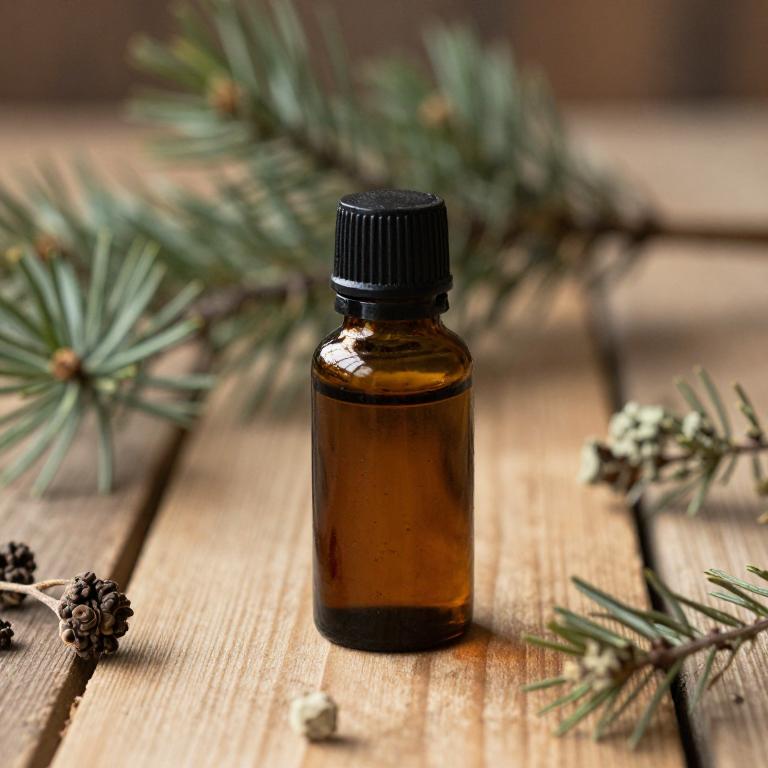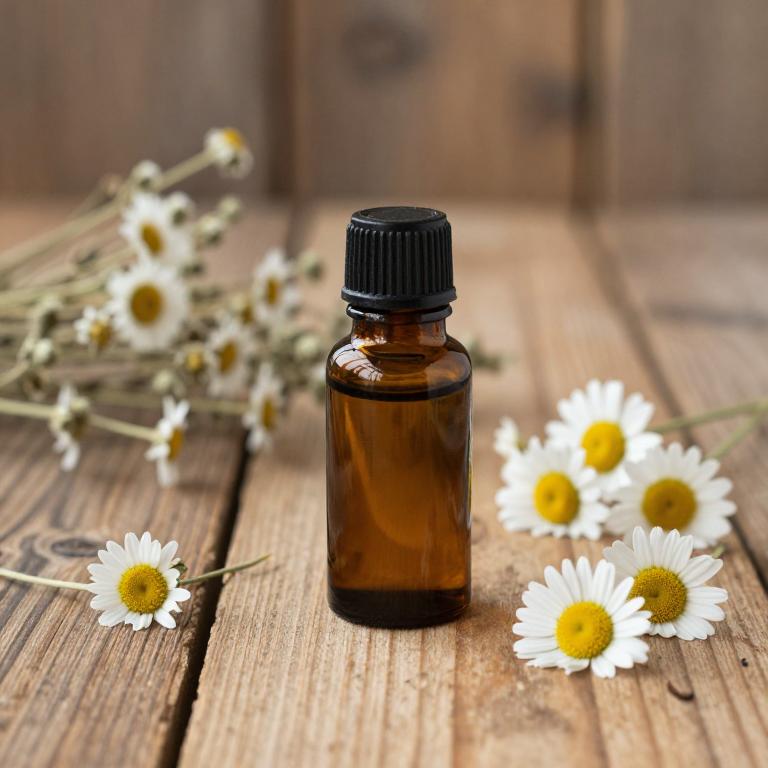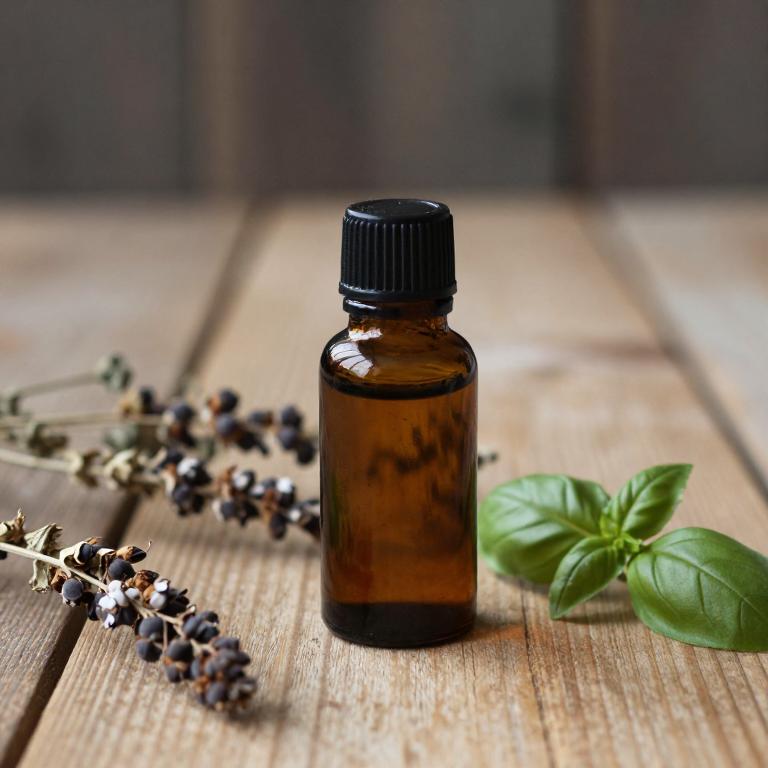10 Best Herbal Essential Oils For Wheezing

Herbal essential oils such as eucalyptus, peppermint, and lavender have been traditionally used to alleviate symptoms of wheezing by their bronchodilating and anti-inflammatory properties.
These oils can help relax the airway muscles, reduce mucus buildup, and ease breathing in individuals experiencing respiratory distress. When used in steam inhalation or diffused in a safe manner, they may provide relief for mild wheezing associated with conditions like asthma or colds. However, it is important to consult a healthcare professional before using essential oils, especially for children or those with existing medical conditions.
While they can be a complementary therapy, they should not replace prescribed medical treatments for persistent or severe wheezing.
Table of Contents
- 1. Eucalyptus (Eucalyptus globulus)
- 2. Scots pine (Pinus sylvestris)
- 3. Thyme (Thymus vulgaris)
- 4. Peppermint (Mentha piperita)
- 5. English lavender (Lavandula angustifolia)
- 6. Rosemary (Rosmarinus officinalis)
- 7. Chamomile (Matricaria chamomilla)
- 8. Ginger (Zingiber officinale)
- 9. Ceylon cinnamon (Cinnamomum verum)
- 10. Basil (Ocimum basilicum)
1. Eucalyptus (Eucalyptus globulus)

Eucalyptus globulus, commonly known as the Australian eucalyptus, is a popular source of herbal essential oils renowned for its therapeutic properties, particularly in respiratory health.
The essential oil contains compounds like cineole, which have been shown to possess expectorant and anti-inflammatory effects, making it beneficial for alleviating symptoms of wheezing. When used in aromatherapy or steam inhalation, eucalyptus globulus oil can help open up the airways and reduce mucus buildup, providing relief for individuals experiencing breathing difficulties. However, it is important to dilute the oil properly before use, as undiluted application may cause skin irritation or allergic reactions.
While it can be a useful complementary therapy, it should not replace medical treatment for severe or persistent wheezing.
2. Scots pine (Pinus sylvestris)

Pinus sylvestris, commonly known as Scots pine, produces an essential oil that has been traditionally used for its respiratory benefits, including alleviating wheezing.
The oil contains compounds such as alpha-pinene and beta-pinene, which have anti-inflammatory and bronchodilating properties that may help reduce airway constriction. When used in aromatherapy or diffused into the air, the scent of Scots pine essential oil can help soothe the respiratory system and ease breathing difficulties. It is often blended with other oils like eucalyptus or lavender to enhance its therapeutic effects for respiratory conditions.
However, it is important to consult a healthcare professional before using essential oils for medical conditions like wheezing, as they should complement, not replace, professional treatment.
3. Thyme (Thymus vulgaris)

Thymus vulgaris, commonly known as thyme, is a popular herb used in aromatherapy for its potent essential oils, which are often utilized to alleviate respiratory issues such as wheezing.
The essential oil of thyme contains compounds like thymol and carvacrol, which have antimicrobial and anti-inflammatory properties that may help reduce airway inflammation and mucus buildup. When used in diffusers or inhalation therapy, thyme essential oil can help open up the airways and ease breathing in individuals experiencing wheezing. However, it is important to dilute the oil properly and consult a healthcare professional before use, especially for those with asthma or other respiratory conditions.
Despite its potential benefits, thyme essential oil should not replace conventional medical treatments for wheezing.
4. Peppermint (Mentha piperita)

Mentha piperita, commonly known as peppermint, is a widely used herb whose essential oil has been traditionally valued for its therapeutic properties.
The essential oil of peppermint contains potent compounds like menthol and limonene, which can help alleviate respiratory symptoms such as wheezing by acting as a bronchodilator. When inhaled, the cooling effect of peppermint oil can help reduce inflammation in the airways and ease breathing. It is often used in aromatherapy or as a natural remedy to support respiratory health.
However, it is important to use peppermint essential oil with caution, as it can be irritating to the skin and may interact with certain medications.
5. English lavender (Lavandula angustifolia)

Lavandula angustifolia, commonly known as English lavender, is widely used in aromatherapy for its calming and soothing properties.
Its essential oil contains compounds such as linalool and lavandin, which have been studied for their potential anti-inflammatory and bronchodilatory effects. Some research suggests that lavender essential oil may help alleviate respiratory symptoms, including wheezing, by reducing airway inflammation and promoting relaxation of the smooth muscles in the airways. While it is not a substitute for medical treatment, it can be used as a complementary therapy under the guidance of a healthcare professional.
When used in diffusers, inhalation, or topical applications, lavender essential oil may support respiratory comfort and ease breathing in individuals experiencing wheezing.
6. Rosemary (Rosmarinus officinalis)

Rosmarinus officinalis, commonly known as rosemary, contains essential oils that have been traditionally used to support respiratory health.
The primary components of rosemary essential oil, such as cineole and camphor, possess anti-inflammatory and bronchodilatory properties that may help alleviate wheezing by reducing airway inflammation and improving airflow. These oils can be used in aromatherapy or diluted for topical application to provide relief from respiratory congestion. However, it is important to consult a healthcare professional before using rosemary essential oil, especially for individuals with asthma or other respiratory conditions.
While rosemary essential oil shows promise in supporting respiratory function, it should not replace conventional medical treatments for wheezing.
7. Chamomile (Matricaria chamomilla)

Matricaria chamomilla, commonly known as German chamomile, is a herbal plant whose essential oil has been traditionally used for its calming and anti-inflammatory properties.
The essential oil contains compounds like bisabolol and chamazulene, which are known for their ability to reduce bronchial spasms and ease respiratory congestion. When used in aromatherapy or diluted in a carrier oil, it can help alleviate symptoms of wheezing by promoting relaxation and reducing airway inflammation. It is often recommended as a complementary therapy for individuals experiencing asthma or other respiratory conditions.
However, it is important to consult a healthcare professional before using chamomile essential oil, especially for those with allergies or existing medical conditions.
8. Ginger (Zingiber officinale)

Zingiber officinale, commonly known as ginger, contains essential oils that have been traditionally used to alleviate symptoms of wheezing due to their anti-inflammatory and bronchodilatory properties.
The essential oils derived from ginger root, such as zingiberene and beta-zingiberene, help reduce airway inflammation and relax bronchial muscles, making it easier to breathe. These compounds may also act as natural expectorants, helping to clear mucus from the respiratory tract. While preliminary studies suggest potential benefits, more clinical research is needed to confirm their efficacy in treating wheezing.
As with any herbal remedy, it is advisable to consult a healthcare professional before using ginger essential oils for respiratory conditions.
9. Ceylon cinnamon (Cinnamomum verum)

Cinnamomum verum, commonly known as true cinnamon, contains essential oils that have been traditionally used for their potential respiratory benefits.
The essential oils derived from its bark contain compounds like cinnamaldehyde and eugenol, which may help to reduce inflammation and relax bronchial muscles. Some studies suggest that these oils may aid in alleviating symptoms of wheezing by improving airway function and reducing mucus buildup. However, it is important to use these oils with caution, as they can be potent and may cause irritation if not properly diluted.
Always consult with a healthcare professional before using cinnamon essential oils for respiratory conditions.
10. Basil (Ocimum basilicum)

Ocimum basilicum, commonly known as sweet basil, produces a fragrant essential oil that has been traditionally used for its therapeutic properties.
The essential oil of basil contains compounds such as linalool and eugenol, which are known for their anti-inflammatory and bronchodilatory effects. These properties make basil essential oil a potential natural remedy for alleviating symptoms of wheezing by reducing airway inflammation and improving respiratory function. Some studies suggest that aromatherapy with basil oil may help ease breathing in individuals experiencing respiratory distress.
However, it is important to consult a healthcare professional before using essential oils, especially for those with underlying health conditions or asthma.